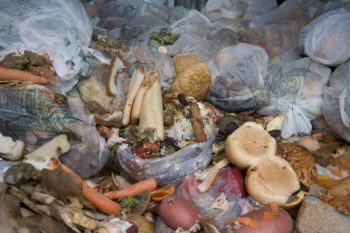The Climate Change Committee (CCC) has warned that the waste sector could generate “substantial emissions” by 2050 unless it implements “new policy urgently”.
In the sixth Carbon Budget report published today (9 December), the committee set out a number of policy recommendations and said that “without substantial increases in policy ambition, and new policies in a range of areas, waste will become an increasing share of emissions”.
Among the policy recommendations are a ban on biodegradable waste to landfill by 2025 and a halt to waste exports by 2030.
The CCC also recommended raising recycling targets and ensuring energy from waste is “constrained by waste prevention, re-use and recycling” policy.
The report did however warn that the waste sector faces a “number of challenges” in reducing emissions.
This includes a growing populations, “time lags”, long term contracts, and the current “lack of carbon capture” and storage infrastructure in the UK.
The CCC is chaired by Lord Deben, the UK’s longest-serving secretary of state
for the environment (1993 to 1997).
Policy
The report provided an overview of waste legislation and said waste reduction policies have been relatively modest to date, and focused mainly on plastics.
It said that given lead-times for changing waste management practices without a risk of unintended consequences, “the waste sector requires new policy urgently”.
Recommendations
A total of nine recommendations were set out, listed below.
- Develop further policies to accelerate the transition to a circular economy
- Food waste policy needs to align with agricultural policy
- Biodegradable waste should be banned from landfill by 2025
- Exporting of waste from the UK should stop by 2030
- Recycling rate ambitions need to be raised
- Incentives for landfill operators to reduce methane emissions
- Energy-from-waste emissions continue to grow, but need to be constrained by waste prevention, re-use and recycling, and over time further mitigated via carbon capture and storage
- Composting facilities should be incentivised to install forced aeration
Waste data needs improvement
Path to Net Zero
As well as policy, today’s release from the CCC also highlighted how the waste sector could reduce its emissions to help the UK achieve its carbon aims.
It said waste sector emissions, now including EfW plants, accounted for 6% of UK emissions in 2018 and were 63% below 1990 levels. Around 60% of this is still from landfill, and around 20% from EfW.
It did say however that emissions have “fallen significantly over the past two decades, due to reductions in waste being landfilled, although have not improved in the past few years due to a plateau in UK recycling and significant growth in fossil emissions from EfW plants”.
Pathway
The CCC’s ‘Balanced Net Zero Pathway’ predicts waste sector emissions to fall 75% from today’s levels to reach 7.8 MtCO2e/year by 2050. Around 80% of the abatement to 2035 is from waste prevention, increased recycling and banning biodegradable waste from landfill.
This also includes ensuring 100% of EfW plants install carbon capture and storage technology from 2040.
Food waste
The committee reported that food waste policy needs to “align with agricultural policy”, and should include “immediate low-cost measures to reduce food waste measures to nudge consumers towards best practice and mandating of separate food waste collection”.
And, it said mandatory business food waste reporting will help achieve reductions in food waste, alongside reductions in household food waste.
Landfill
For landfill, the committee recommends that biodegradable waste should be banned from landfill by 2025, across municipal and non-municipal sectors, to include at least paper and cardboard, food, textiles, wood and garden wastes.
However, it said this must not be rushed, saying that if full landfill bans are imposed without accompanying improvements in prevention or recycling, and before carbon capture and storage is widely available, “this could substantially increase waste volumes going to EfW and increase sector emissions by several MtCO2e/year”.
It said that achieving this ban would decrease the tonnage of biogenic material entering landfill by at least 85% by 2025 from 2018 levels.
The committee added that where local authorities are able to move faster than 2025, they should be “incentivised to do so”.
EfW
The report added that energy-from-waste emissions “continue to grow”, and need to be “constrained” by waste prevention, re-use and recycling, and over time further mitigated via carbon capture and storage.
It added that new circular economy measures, prevention and recycling targets need to be translated into their impact on regional residual waste arisings, and these findings communicated to councils.
Guidance should be issued to help align local authority waste contracts and planning policy to the expected improved residual arisings trajectories, the report added.
“For example, in Wales, energy-from-waste plants will have to be phased out by 2050 to achieve Welsh Zero Waste targets”.
The report was launched today by the committee, and the online event can be seen below.
The post Risk of ‘substantial’ waste emissions by 2050, CCC says appeared first on letsrecycle.com.
Source: letsrecycle.com Waste Managment








